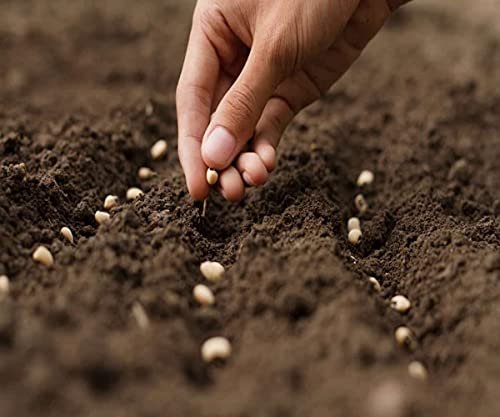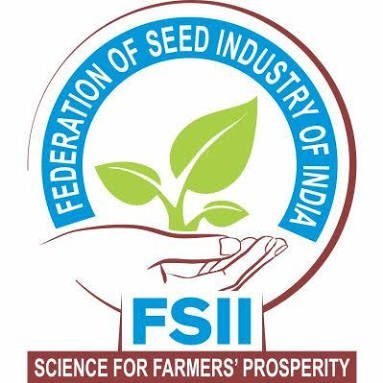Targeting Food Security, High Yield & Sustainable Farming
Agri biotech startups are driving innovations in crop improvement, biofertilisers and precision farming, targeting the nation’s long-term goals of food security, reduced cost for farmers, sustainability and high yields for a growing population.
India’s agriculture sector and allied industries have always been resilient and a strong backbone for the economy and livelihood for a majority of citizens. Leveraging the immense potential of agri-biotechnology, experts believe, could turn transformative for the sector and the stakeholders involved. Agri biotech startups are driving innovations in crop improvement, biofertilisers and precision farming, targeting the nation’s long-term goals of food security, reduced cost for farmers, sustainability and high yields for a growing population. However, these are fraught with challenges that could be addressed with government support, investment in research and a favourable policy environment, among others.
Agri biotech startups are transforming agriculture with innovative biological solutions that enhance productivity, improve soil health, and reduce reliance on synthetic inputs. Beyond production, agri biotech offers new ways to utilise agricultural produce and waste, and startups are at the forefront of these innovations. Agri-biotech startups in India face challenges including limited access to capital, regulatory hurdles, technological limitations, and market penetration issues, hindering their growth and scalability. The government is trying to support agri-biotech startups through various initiatives. The Union Budget 2025-26 announced an increased allocation for the Department of Biotechnology to support Biomanufacturing, Biotech research, Entrepreneurship, innovation, skill development, etc. An allocation of Rs 20,000 crore has been designated to support private sector-driven research. With strengthening intellectual property rights, facilitating global partnerships and the right policy interventions and investment in research agri biotech startups are looking forward to the growth of the industry.
According to a report from precedenceresearch.com, the agricultural biotechnology market in the Asia Pacific (APAC) region is segmented into India, China, Japan, South Korea, and the rest of the Asia Pacific (APAC) region. China dominated the Asia Pacific region followed by India and Japan. In India, biotechnology’s success extends beyond rice to other crops. Andhra Pradesh has been a leader in the adoption of Bt Cotton, with 4,73,345 farmers cultivating it in 2023–24. An ICAR-CICR study found Bt cotton increased yields by 3-4 quintals per acre while reducing pesticide use. Such advancements support sustainable, climate-resilient agriculture. Other crops of Andhra Pradesh like Maize, Rice, Chilli, Vegetables, Pulses and Oilseeds can get a big boost with the help of biotechnology.
In India, agri biotech startups are contributing to the growth of the agriculture sector by providing technological support from seed to the post-harvest supply chain. Despite this, startups are facing major roadblocks such as limited access to capital, lack of seed funds, complex regulatory processes and legal hurdles, and inadequate Infrastructure and Intellectual Property (IP) Protection. Agri-biotech startups often struggle to secure funding, especially in the early stages, due to the perceived risk and long timelines associated with agricultural innovation. The regulatory landscape for agricultural biotechnology can be complex and time-consuming, leading to delays in product development and market entry. Ensuring adequate protection for intellectual property is crucial for attracting investment and incentivising innovation, but weak IP protection can discourage innovation. Lack of access to state-of-the-art facilities for research, manufacturing, and distribution limits the ability of startups to innovate and scale operations.
Ajai Rana, CEO & MD, Savannah Seeds and Chairman, Federation of Seed Industry of India commented on the roadblocks agri biotech companies facing currently and the way forward, “Agri biotech companies in India face multiple challenges, including the absence of national accreditation for research-driven seed companies, regulatory uncertainties, and financial constraints due to the removal of the 200 per cent income tax deduction on R&D. The GST burden on input costs also adds to operational challenges. Moreover, there is no clear differentiation between research-based seed companies and those that do not invest in R&D, creating an uneven playing field.”
Rana also emphasised measures to mitigate the current challenges of the agri-biotech sector in India. He said, “To overcome these roadblocks, establishing a National Register of Research-based Seed Companies, reinstating the 200 per cent R&D tax deduction, and introducing a National Seed Production & Trade Policy are critical steps. Additionally, an exemption from GST on expenses related to production, processing, storage, and transportation will ease financial strain and enhance competitiveness. These measures will not only promote research and innovation but also strengthen India’s position in the global seed industry.”
Inputs for growth
According to Dr Ratna Kumria, Senior Director, Agri Biotechnology at Alliance for Agri Innovation, India’s agricultural biotechnology sector is at a crucial juncture, where technological advancements are essential for growth. We have already integrated several new technologies into our system, but there is a need to incorporate global best practices from regions like the US, South America, and Europe into our value chain. These steps will not only enhance productivity but also contribute to sustainability, create a positive environmental impact, and improve farmers’ incomes, not just through increased yields but also by optimising the utilisation of agricultural output.
To read more click: https://agrospectrumindia.com/e-magazine
Agri biotech startups are driving innovations in












